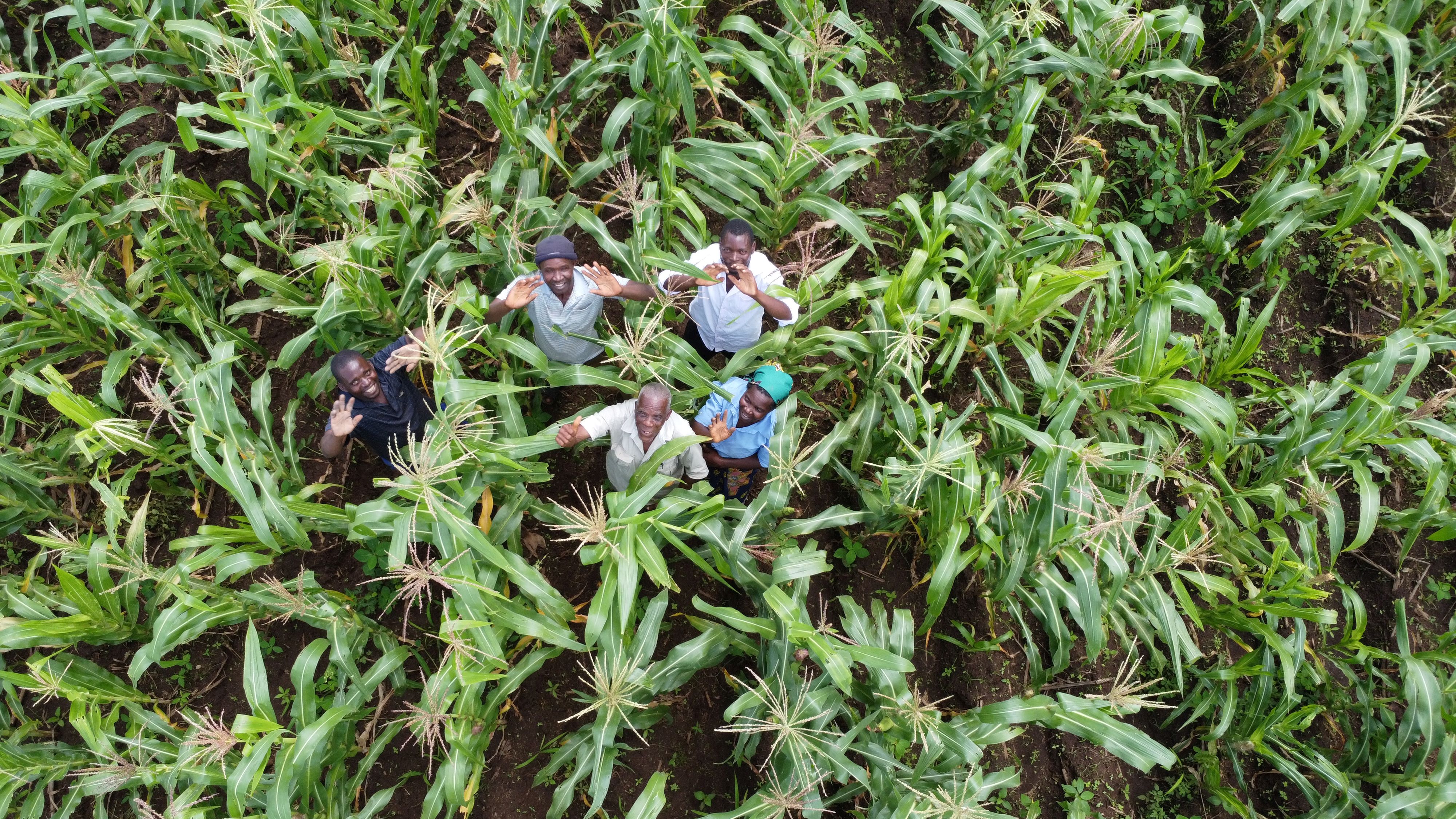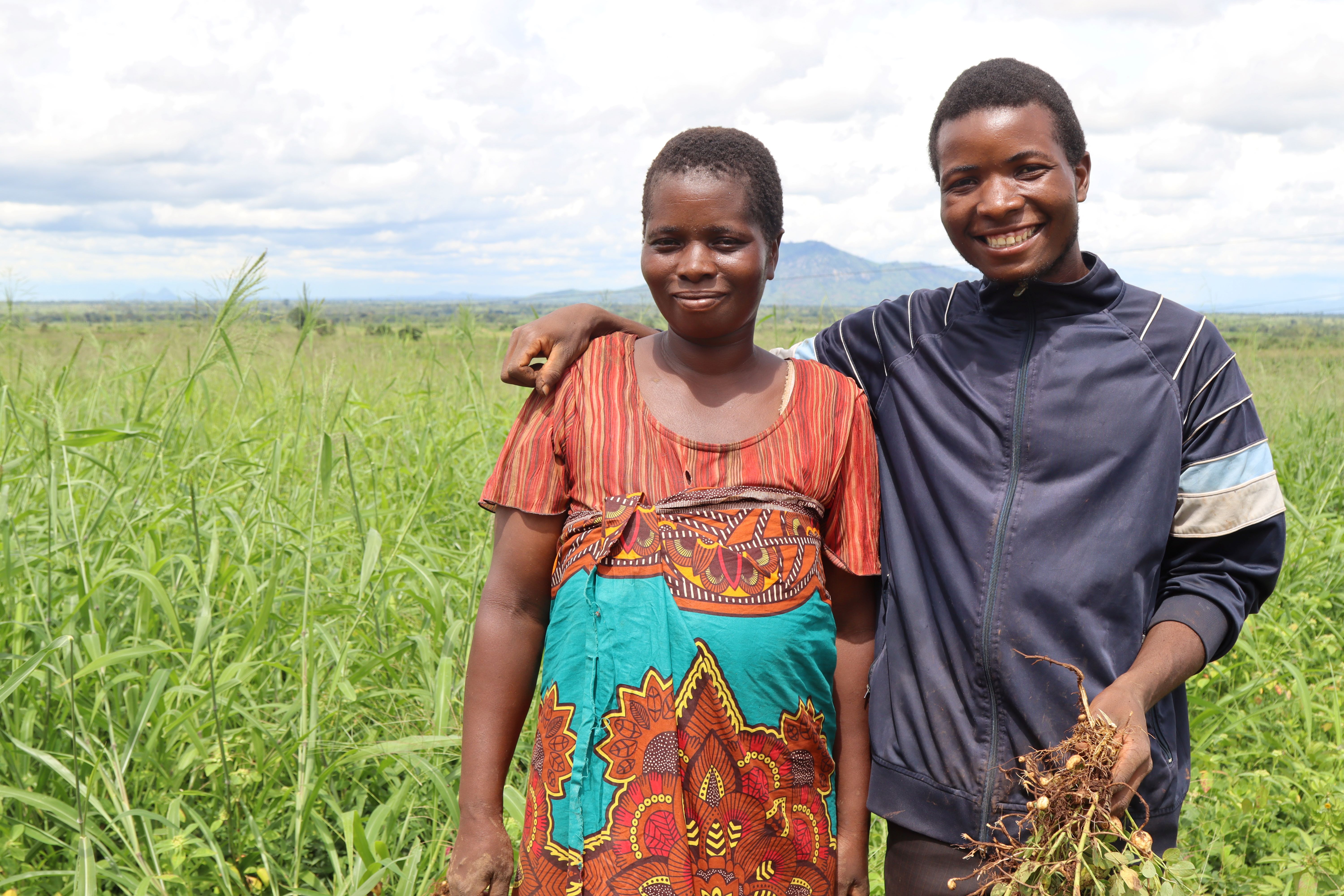A Young Farmer's Dream
Fasiniki is a farmer. Fasiniki is also a first year student at Malawi University of Science and Technology. He is studying towards a Bachelor of Science degree in Chemical Engineering.
Fasiniki’s parents are members of the M’bawa Irrigation scheme in Njema Area Programme, in Mulanje. Being a son to farmers, he has by virtue learnt the trade from his parents, and he seems to enjoy it.
“I have learnt farming from my parents. We normally go out into the field today, when schools are not in session.”
In the 2021/2022 farming season, Fasiniki’s parents realized over MK1, 500,000 from maize and groundnuts.
“My family has survived through farming, especially groundnuts. My siblings and I have been able to go to school and have all the basic needs because my parents can afford to do so. And it’s through farming," he says.

M’bawa Irrigation Scheme was established in 2017, and it is now home to 473 farmers and their households, which includes 2,027 children. And according to the committee led by Mailosi Ligodo, the majority of the members are women.
“The scheme has 285 women farmers. And we are all able to work together without bias. We farm three times a year now, one through rain fed agriculture and twice through the irrigation system which World Vision built for us.
We grow maize, rice, groundnuts, beans and tomatoes. We were trained by World Vision on effective irrigation farming and management, leadership, market research and identifying profitable value chains. So the crops we grow here are suitable for our climate which is predominantly too wet; therefore cereals and legumes thrive well.” Explains Mailosi.
Mailosi was able to buy a brand new motorcycle with MK1,125,000 ($1,110); proceeds from the farming.
The group also has a bank account with one of the local banks. “We deposit our income as a cooperative at the bank. This helps us manage our finances well, and also to create room for village savings loans amongst the members,” Amos Chimwala chips in. Amos is in the finance committee of the cooperative.
According to the World Food Programme, the world is facing the largest food crisis in modern history. A record 349 million people across 79 countries are facing acute food insecurity. Global fertilizer prices have climbed even faster than food prices, threatening to reduce harvests.

“We used to struggle with food insecurity. To make matters worse, the methods we used for farming were bad for the climate and soil. But now we know and do better. I for one farm groundnuts, beans, tomatoes and maize. I even have 10 cattle, and I bought land to build houses for rent. One house is already complete," beams Amos.
At 70, Amos is one of the oldest members of the scheme. He is a retired primary school teacher, and he grins with pride that even in his retirement, he can sustain himself, and his family, including 6 grandchildren.
Education levels the playing field, especially for children and young people from vulnerable households and communities. But the path to education varies, for others, it is through farming.
Fasiniki has big dreams. More than a farmer, he wants to become educated enough to help bring change for his community: “I want to establish my own company, create employment for people in my village. I also want to build a clinic closer to home.”
M’bawa Irrigation Scheme covers 100 hectares of land, giving access to 473 farmers and their house-holds. With an investment of $90,000, the scheme has canals, conveyance system and water intake system.
Written by Wezzie Nungu